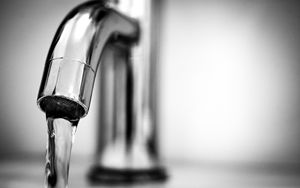(Finance) – With two end-of-year resolutions, ARERA introduced a novelty package for the water system, destined to unfold their effects over the next six years for the gradual and constant improvement of the water service. After extensive consultation with interested parties – which in recent months has involved the Ministry of Infrastructure and Transport, the National Extraordinary Commissioner for the adoption of urgent interventions related to the phenomenon of water scarcity, the District Basin Authorities, the Conference of the Regions
and of the autonomous provinces, companies, sector bodies, associations, observatories and local authorities – with the decides of 28 December (639/2023/R/idr) ARERA approved the Water Tariff Method for the fourth regulatory period 2024-2029 (MTI-4), maintaining stability in the guiding criteria and the objectives of reducing service differences between the areas of the country, in continuity with the rules introduced starting from 2012.
L’MTI-4 will last 6 yearsproviding for an update of the Strategic Works Plan (POS) until 2035, aiming to promote the safety of supplies water and, at the same time, to promote greater cooperation at different planning levels. Among the new elements is an update of the component covering the cost of electricity, which has been the subject of clear fluctuations in recent years. For the sustainability energy And environmentalFurthermore, the method also involves an initial use of the resources of Fund for the promotion of innovation (established at CSEA) to reward the reuse of purified waste water and the reduction in the quantity of electricity purchased.
With resolution 637/2023/R/idr, ARERA then intervened in the regulation of the technical quality of the integrated water service (RQTI), with some extremely topical elements. For example, with new macro-indicator (M0-water resilience) the Authority will measure the interventions of managers aimed at mitigating the effects of climate change. The alternation of drought and floods makes a new approach necessary, in supplies on the one hand and in the management of rainwater on the other.
“In twelve years of regulation by the Authority, the water system managers have demonstrated the ability to invest and improve quality parameters – states the president of ARERA, Stephen Besseghini – today it is necessary to intercept new priorities, mainly linked to climate change and energy and environmental sustainability objectives. The rules of the new method aim at the stability of the reference framework, continuity in the promotion of investments and constant improvement of quality in this direction”
(Photo: Rudy and Peter Skitterians)
